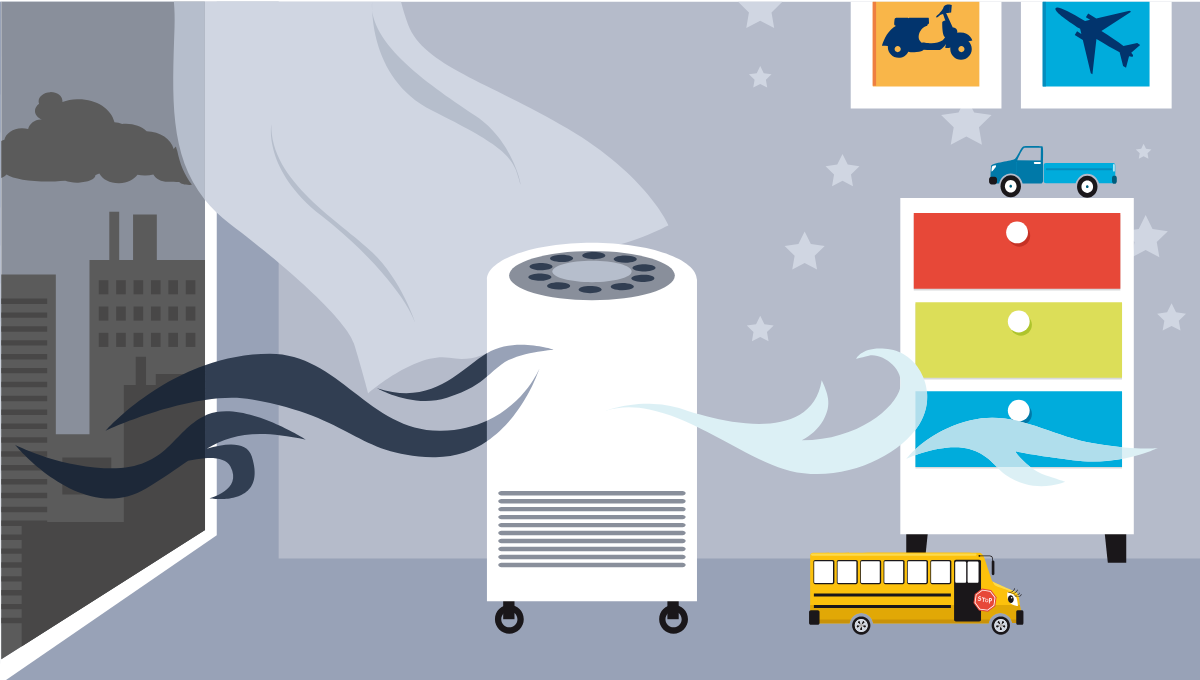Air Purifiers and Their Impact on Cardiovascular Health

Strong 8k brings an ultra-HD IPTV experience to your living room and your pocket.
When most people think of air pollution, they picture coughing fits, asthma, or respiratory issues. But here's something surprising—what you're breathing may also be silently straining your heart.
In recent years, scientific research has increasingly linked poor air quality to cardiovascular disease. That includes high blood pressure, heart attacks, strokes, and even heart failure. As air quality worsens in urban environments, many people are turning to air purifiers not just for comfort—but for protection. But can these devices really safeguard your heart?
Let’s dive into what the science says—and how you can use air purifiers to support better cardiovascular health.
How Air Pollution Impacts the Heart
It’s not just your lungs that suffer from pollutants like PM2.5 (fine particulate matter), VOCs (volatile organic compounds), or nitrogen dioxide. When inhaled, these particles can enter your bloodstream through your lungs, causing widespread inflammation and oxidative stress—two major contributors to cardiovascular issues.
According to the American Heart Association, long-term exposure to polluted air can accelerate plaque buildup in the arteries, increase blood pressure, and trigger heart attacks. The World Health Organization estimates that over 7 million deaths annually are linked to air pollution—and a significant portion of them are cardiovascular in nature.
What Air Purifiers Actually Do
Air purifiers work by trapping harmful particles and gases from indoor air using filters like HEPA and activated carbon. These filters are designed to capture fine particles—including allergens, dust, smoke, and even airborne bacteria.
According to EPA.gov, a good-quality air purifier can significantly reduce the concentration of indoor pollutants. This can be especially beneficial for people with pre-existing heart conditions or those living in high-pollution zones.
On Find My Air Purifier, you’ll find expert reviews and recommendations for purifiers that are optimized for cardiovascular health. Whether you're dealing with wildfire smoke or urban smog, the right purifier can make a noticeable difference in your daily wellbeing.
Scientific Evidence: Air Purifiers and Heart Health
Here’s where it gets interesting.
A study published in the Journal of the American College of Cardiology found that participants who used air purifiers for just two days showed improved blood pressure and reduced inflammation levels. Another 2020 study from Harvard T.H. Chan School of Public Health linked cleaner indoor air to better heart rate variability—an important indicator of heart health.
These findings are especially important for vulnerable populations such as the elderly, people with hypertension, or those recovering from heart-related surgeries.
While air purifiers are not a substitute for medication or lifestyle changes, they can complement a heart-healthy environment—especially when outdoor air quality is beyond your control.
Who Should Consider Using an Air Purifier for Heart Health?
While air purifiers can benefit anyone, they’re especially valuable for:
- Individuals with heart disease or hypertension
- Seniors and elderly people with weakened immune systems
- Pregnant women and children (more vulnerable to pollution)
- Urban residents exposed to traffic fumes or industrial emissions
How to Choose the Right Air Purifier
When it comes to heart health, not all air purifiers are created equal. Here’s what to look for:
True HEPA Filter: Must capture at least 99.97% of particles 0.3 microns in size.
Activated Carbon: Effective for removing gases and VOCs that can affect blood pressure.
No Ozone Production: Avoid ionizers that release ozone—it can actually worsen heart and lung issues.
CADR Rating: Higher Clean Air Delivery Rate means faster air purification.
The team at Allergy & Air also offers deep dives into which purifiers are safest and most effective, especially for people with chronic health concerns.
FAQs
Can air purifiers prevent heart disease?
They can’t prevent heart disease, but they can reduce indoor air pollution, which is a major contributor. Think of them as part of a broader heart-health strategy.
Do air purifiers lower blood pressure?
Several studies show a modest drop in blood pressure with cleaner air, especially in high-pollution regions.
Are air purifiers safe for people with pacemakers or stents?
Yes—as long as they don’t produce ozone. Always choose certified, medical-grade models.
Final Thoughts
Air pollution doesn’t stop at your lungs—it travels through your bloodstream and can quietly affect your heart. Investing in a quality air purifier is a small step with potentially huge benefits for cardiovascular health.
Note: IndiBlogHub features both user-submitted and editorial content. We do not verify third-party contributions. Read our Disclaimer and Privacy Policyfor details.


